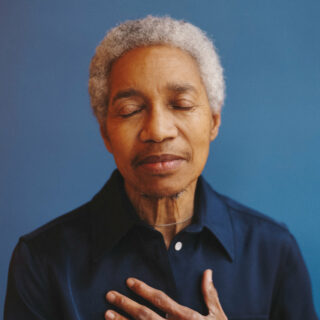Beverly Glenn-Copeland
The Ones Ahead
7/10

7/10
Beverly Glenn-Copeland is something of a living legend: a synth pioneer whose seminal 1986 album Keyboard Fantasies has become a touchstone for contemporary alternative musicians (last year’s Keyboard Fantasies Revisited saw Arca, Blood Orange, Kelsey Lu, Bon Iver, Julia Holter and more interpret tracks from the record) despite the fact it was largely forgotten for decades after its initial release, with the 200 cassettes that formed its initial run having become a collector’s holy grail. Thanks to a reissue by Transgressive, and a 2019 documentary, Copeland has finally gained the recognition and fanbase he always deserved.
On The Ones Ahead, his first album in almost two decades and the first since the revival of Keyboard Fantasies, Copeland is as innovative as ever. Sonically more similar to his 2004 record Primal Prayer, it is his voice that is the lead instrument here, as he contemplates love, race and climate change. It’s an immensely powerful instrument too, one which he seems to have complete mastery over, and yet which conveys a profound depth of emotion throughout, particularly on the commanding ‘People of the Loon’ and the mournful ‘Lakeland Angel’. At times, the absolute sincerity of his vocals verges upon musical theatre territory; there’s something Sondheim-esque about the performances on ‘Harbour (Song for Elizabeth)’, dedicated to his wife, and the call and response refrains of ‘Stand Anthem’, an appeal for collective environmental action, but Copeland’s earnestness feels genuine rather than trite.
As with Keyboard Fantasies, The Ones Ahead creates a richly textured sonic world which envelopes the listener from beginning to end. Part of the album was recorded live from the floor and you can feel the energy of Copeland and his touring band Indigo Rising playing together in real time. On opening track ‘Africa Calling’, a rapturously joyful ode to his West African heritage and potentially his most upbeat song yet, he lets percussion take centre stage amid the many layers of vocal and synths. Elsewhere on ‘Prince Caspian’s Dream’, the instrumentation is stripped back as Copeland sings, in a melancholic, almost operatic vocal: “Love is the heart of life, this I know.” It’s a line which sums up the mood of The Ones Ahead, which for all its theatricality and intensity is ultimately rooted firmly in reality, and in tenderness.